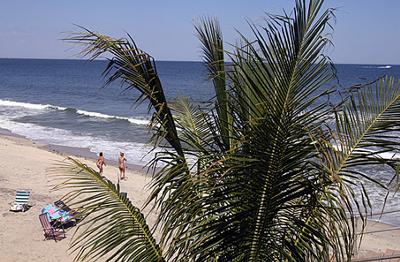Black Hole?
by B. Johnson
(Earth)
This is indeed an interesting collection of ideas. I agree with the fact that matter is made of atoms and atoms vibrate, according to some atomic theory.
I would enjoy hearing more about the hypothetical black hole at the center of the Earth. As of this time, I have read about two types of black holes.Holes in Space
The first are the "big, nasties" that can be "seen" in outer space. These black holes are theorized to be collapsed stars that have such intense gravity nothing tangible escapes.
The other type is the mini-black hole created from the use of atomic accelerators (atom smashers). The "proven" occurrence is brief and has not yet tried to suck in the Earth.
As for the
natural breakdown of everything, the process is called entropy, breakdown and vibration of atoms does not create a significant level of heat that is not counteracted the cooling effects of space, matter interaction, and gravitational influence.
Current theories
...that have true scientific basis are:
1) The greenhouse gas theory
2) Shifting polar/magnetic core
3) Solar effective change
4) Minor combination of all the above acting simultaneously
5) 2012 – Dec 21 hypothesis
The research is compelling for each of these theories, even the "end of the world" in #5. Prophets have come to a similar conclusion about the odd 2012 data. Something big may be happening. I find the tie in to the Earth passing through the center of the Solar System during that time an interesting "coincidence."
Barry's Response - Thanks BJ from a very specific place. You have provided some real food for thought here.
Ever wondered, "Gee black holes might be scary things. Maybe we don't want physicists creating them here on our planet after all."? Just a thought.
Maybe they have a good one planned for that date you mentioned above.
The Wonder
Many people have been fascinated by Earth's mythical black hole. Science strongly refutes this idea. Even light can't escape black holes in space. They usually form when massive stars collapse. The Earth's interior is black hole-free, says theoretical physicist Ethan Siegel.
Often, climate science focuses on human-induced factors, like fossil fuel emissions. Natural factors also affect Earth's climate. There are volcanic eruptions, variations in solar radiation, and shifts in Earth's orbit. Climate is affected by volcanic eruptions, changes in Earth's orbit, and plate tectonics, according to the Met Office.
These natural factors play a big role in climate variability. There's a possibility that the current warming trend is part of Earth's natural climate cycles. This perspective gets at climate dynamics in a more nuanced way.
Climate and Man
Climate science is also somewhat politicized. Climate policies might be influenced by financial and political interests, say skeptics. Scientific endeavors emphasize freedom of thought and open discourse, ensuring transparency and critical evaluation of all data.
Stewardship of the Earth is fundamental to those who have heard that we should "tend and keep" the Earth, and this implies responsibility. Some interpret it as human dominion over nature, while others advocate sustainable living.
A black hole at Earth's center is science fiction, but it's a metaphor for our planet's complexities and mysteries. Discussions about climate science should be open, informed, and respectful. A robust understanding of Earth's climate requires diversity of perspectives, challenging prevailing models, and staying vigilant against biases.
If you have something to say, go ahead an post a comment below. Otherwise, you can Search this site for more information now.
Do you have concerns about air pollution in your area??
Perhaps modelling air pollution will provide the answers to your question.
That is what I do on a full-time basis. Find out if it is necessary for your project.
Have your Say...
on the StuffintheAir facebook page
Other topics listed in these guides:
The Stuff-in-the-Air Site Map
And,
Thank you to my research and writing assistants, ChatGPT and WordTune, as well as Wombo and others for the images.
GPT-4, OpenAI's large-scale language generation model (and others provided by Google and Meta), helped generate this text. As soon as draft language is generated, the author reviews, edits, and revises it to their own liking and is responsible for the content.



